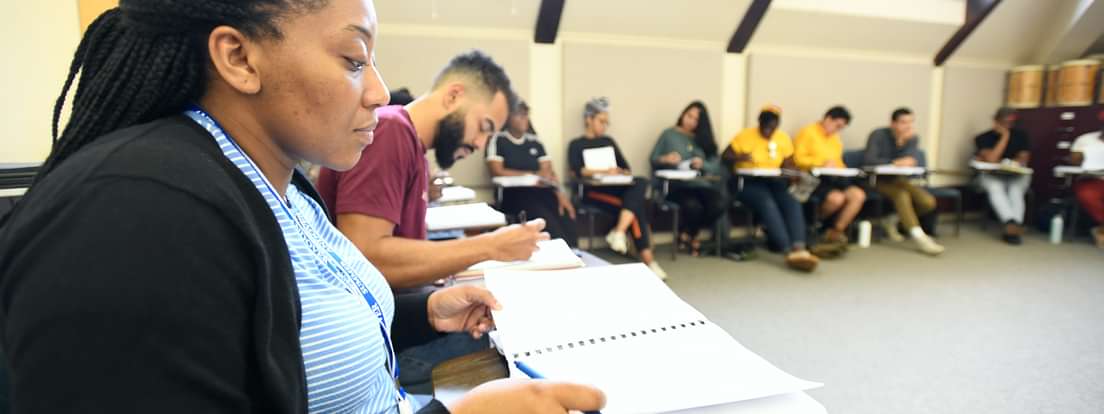
The Impact of IRT
Program History & Alumni Highlights
Founded in 1990, the Institute for Recruitment of Teachers (IRT) has supported more than 2,800 scholars on their journeys toward graduate degrees and further academic study. IRT alumni hold 420 PhD degrees in a range of fields, with the highest percentages of doctoral degrees earned in education (17%), English (16%), and history (13%). Additionally, over 1,000 alumni of the program have earned terminal master's degrees in the humanities, social sciences, and education.
IRT alumni include 60 tenured faculty and 63 tenure-track faculty at institutions such as Boston University, Brown University, Cornell University, MIT, Northwestern University, NYU, Sarah Lawrence College, UCLA, and University of Virginia. In addition, numerous IRT alumni are working as elementary, middle, and secondary school teachers, principals, superintendents, school psychologists and counselors, as well as higher education administrators.
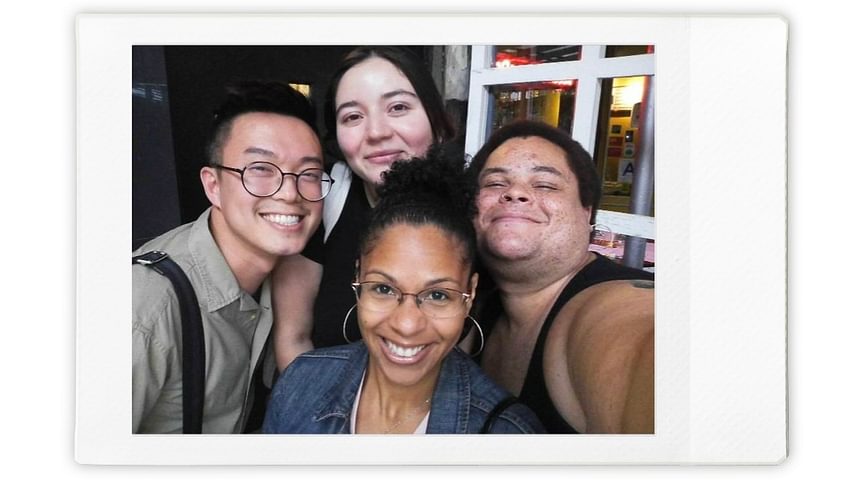
2023 IRT Cohort
108
total admitted students--matriculants and graduates of 20+ public, private, and minority serving institutions
95%
of students identify as Black, Latinx, Asian/Pacific Islander, Native American, or multiracial
61%
of students identify as female, 23% identify as male, and 16% identify as gender nonconforming
52%
of students indicate low-income status
58%
of students identify as the first generation in their family to attend college
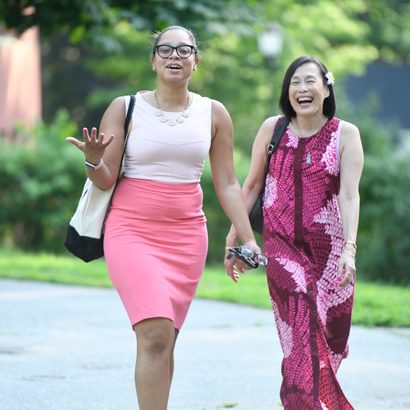
The Institute for Recruitment of Teachers:
Offering intensive summer programming and year-round support
Through an array of virtual summer and academic year programming and counsel, 2022-2023 IRT scholars received dedicated 1:1 mentoring and advising support in addition to a comprehensive summer curriculum--all offered with a goal of preparing students for graduate experiences in education and the humanities. With a deep emphasis on building community, centering wellness, deepening curriculum connections, and expanding outreach, the IRT's 33rd year provided an impactful experience for over 100 scholars across the globe.
- Build Community: Develop community and a sense of belonging among the IRT cohort through field choice and regions.
- Center Wellness: Cultivate healing center engagement (Ginwright, 2018) to address the past years’ pandemic and racial injustice impacts.
- Deepen Curriculum Connections: Revise the IRT curriculum to ensure alignment to current higher education trends.
- Expand Instructional Outreach: Broaden IRT scholars' experiences of teaching "in community" (i.e., community centers, prison complexes, local libraries) instead of solely in traditional school and classroom spaces.
In 2022-2023, more than 40 consortium partners supported IRT scholars with fee waivers, informational presentations, and guidance throughout the graduate application process. IRT staff and alumni produced instructional webinars, provided resources, and aided scholars throughout the admissions and matriculation process.
IRT 2022 Cohort: Impact
755
Applications Processed to Graduate Programs
77%
IRT Scholars Admitted to Graduate School
30%
Admitted to 4+ Graduate Programs
42%
Received Full Funding for Graduate School
80%
Enrolled in PhD/EDD graduate programs
20%
Enrolled in MA/MS/MFA/MAT Graduate Programs
Students React to the Impact of IRT
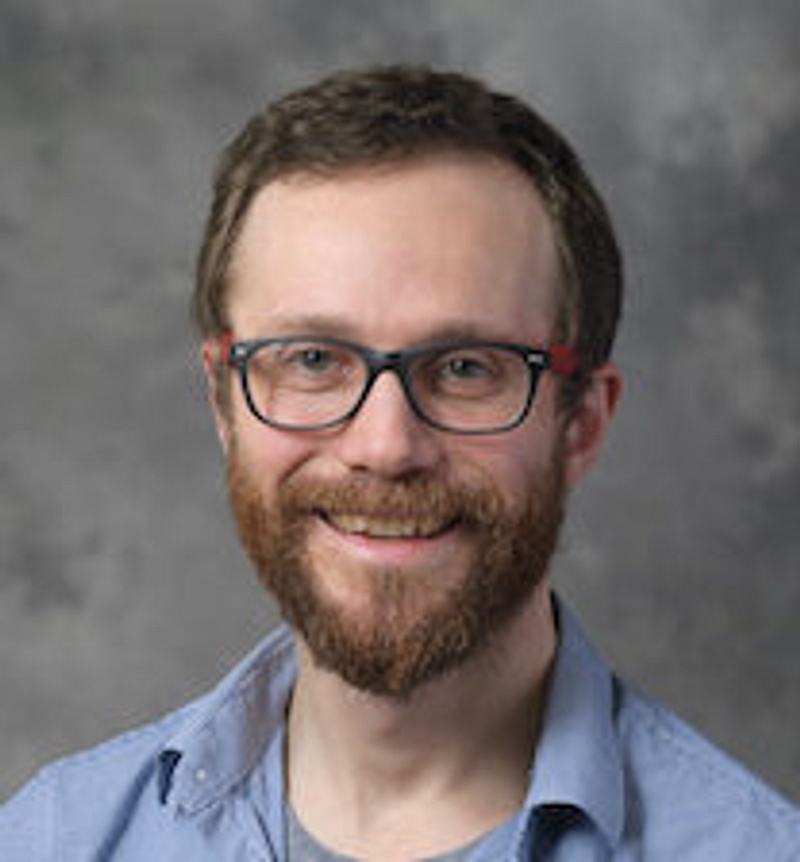 Andrew Flachs, IRT '10, Associate Professor of Anthropology, Purdue University
Andrew Flachs, IRT '10, Associate Professor of Anthropology, Purdue University
“Without IRT, I would not have applied to graduate school or considered becoming a professor.”
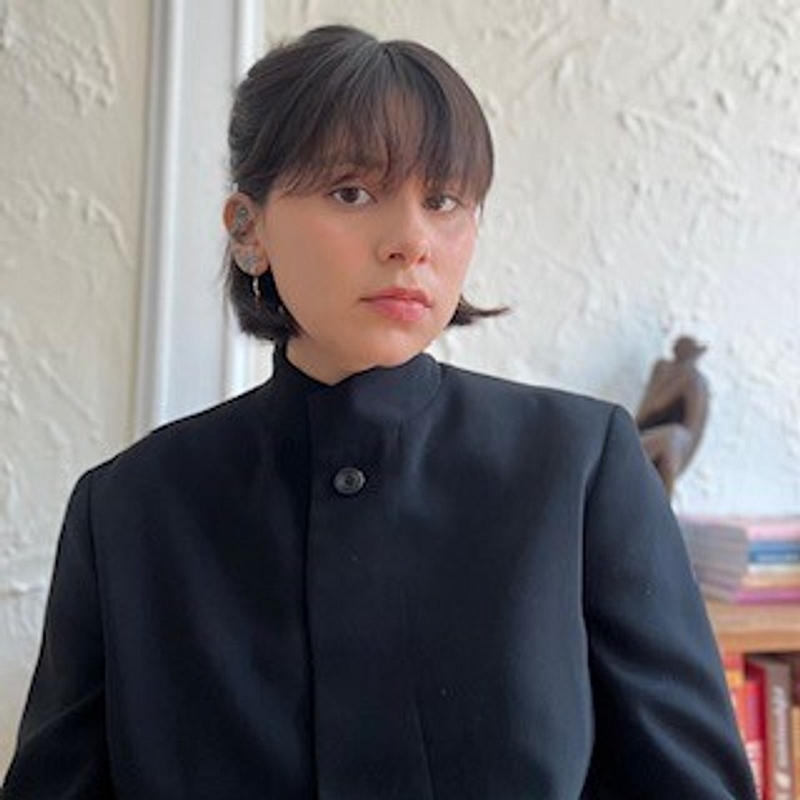 Daisy Matias, IRT '20, Doctoral Student, Northwestern University
Daisy Matias, IRT '20, Doctoral Student, Northwestern University
“My time as an IRT scholar was the beginning of my path to building community with other underrepresented academics and educators. Working as a Statement Of Purpose (SOP) advisor has let me maintain a connection with a community that means so much to me.”
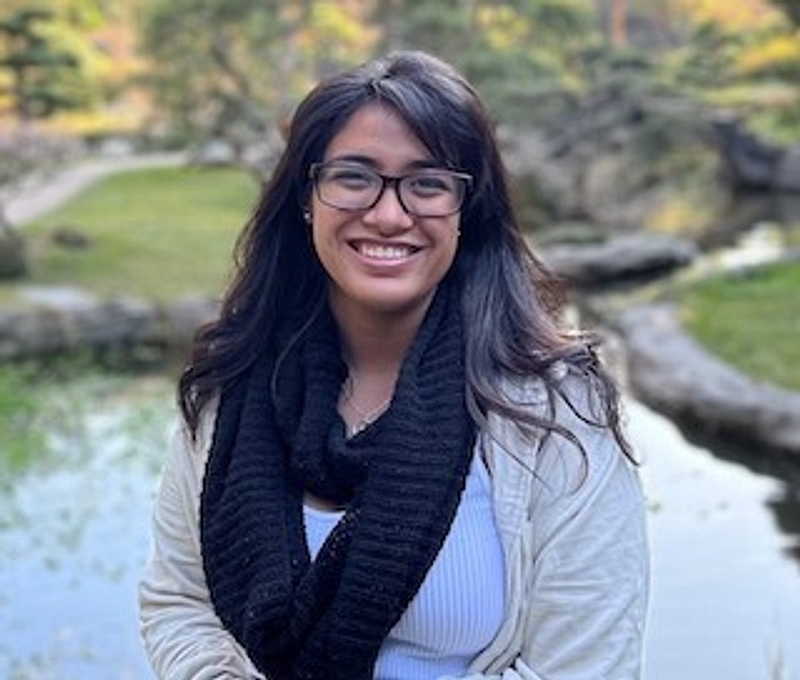 Yasmin Mendoza, IRT '21, Doctoral Student, UC - Davis
Yasmin Mendoza, IRT '21, Doctoral Student, UC - Davis
“It is my greatest hope that I can give any student I work with the same feeling of confidence that, no matter where I ended up after the application deadline was over, I had done everything I could. Every individual in the IRT program belongs in academia, and I am incredibly proud to be a part of this community.”



